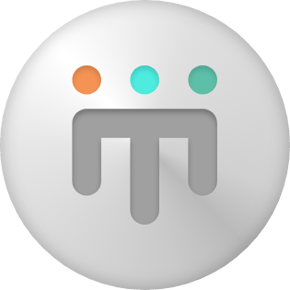Organisations could improve the way they hire new candidates.
It’s a little backwards.
We want to know that their past performance matches up with the current job requirements, and as a result, we place too much emphasis on resumes, experience and skill sets. And sometimes, we even take into account how good the interview went.

As you’re aware, some people are really good at interviewing. And because management has said something to you like “we only want to hire passionate people”, you’re probably out there looking for passion. And let’s be honest, it can be hard to read passion on a page. But it’s far easier to read passion in a room.
So when a candidate exhibits passion during an interview, you think, “Heck, that’s a passionate candidate!” Well, that’s not always the case. I mean, how do you know they aren’t just passionate about the interview and won’t be so passionate about the work?

It happens. We get it wrong sometimes. It’s part of working in HR. We’ve all hired people who were great on paper and impressed us during the interview. But when they came into the office, things just didn’t quite gel.

And this is exactly why you should treat your hiring process like dating.
Now, I’m not saying you should take the candidate out on a date. You don’t need to do your hair, take them out for dinner, open the door for them or anything like that. But you should think about treating the hiring experience as a feeling out exercise. Because as an HR manager, you’re essentially going to give this person a set of keys to the ‘house’. You’re going to let them in and give them some responsibility.
Dating aside, you are bringing someone into your work family. And this is why you should probably think about hiring a little more carefully and get to know them on a few different levels. So, it’s probably a good idea to re-think your hiring and interview process, starting with the job description.
Job Description
Ask a friend or a colleague to read a job description (JD) before it goes out. Don’t ask them if they like it, rather ask if it communicates what your organisation is about. Because it's not only about finding a candidate who matches the skills and can perform the job, it’s also about finding someone you can trust.
Too many JDs ask candidates to sell themselves. While that’s important, a JD is about selling your organisation as much as it is about the candidate selling! And that’s why so many JD’s are wrong. They ask the candidate for a lot of information. Their skills. Past performance, all the usual. But this tells us very little about who they really are. Let alone much about your organisation.

So, whether you’re instructing someone to prepare a JD or writing it yourself, start by describing your culture at the top of the job posting. Because the description of your culture really defines what it’s like to work at your organisation. Be brutally honest. The good, the bad and the ugly. Because that’s what they’re going to experience. It will immediately turn some on or off. Just like dating, right? 
After being honest about your culture, the next step is to set out the brass tax of what you’re looking for—skills and qualifications. Be specific and avoid generic terms that could apply to any job. Instead of saying "good communication skills," explain what kind of communication is needed. Do they need skills to communicate in a persuasive sales pitch? Or skills to communicate clear technical documentation?
Tailor your language to paint a vivid picture of the skills in action. If you’re struggling on this, think about ‘what’ skills they’ll need, and re-frame it as ‘why’ they need these skills. When you re-frame it, you help this person see the bigger picture and understand how their skills will make a contributing impact.
Finally, think about what level of experience you’re after. Avoid listing years of experience, rather talk about the types of experiences that will prepare someone for this role. This approach resonates more with candidates who are passionate about what they do.
The Meet Up
Once you’ve found an interesting candidate, there’s only one way to take your hiring process to the next level. And no, it’s not about flying into the next gear. It’s about slowing—down—your—interview—process. 
Now, that’s not always feasible. We know that. But when you can, we recommend trying it. You wouldn’t start dating someone after reading about who they are on paper, would you? Exactly. Slowing down means taking the time to get to know someone.
Get to know them outside the office. Take them for a coffee. Where you get to know them as a human being. Ask about their family. What they’ve done. Talk about their private life. And after the coffee, start asking yourself, “Do I like this person?” “Do I want to spend more time with them?” “Could I see myself trusting this person?” These are all important things to be thinking about. 
The reason why it’s a good idea to go for coffee or lunch is because people reveal themselves in social settings. You wouldn’t want to date someone in a white room with a dying pot plant under a fluorescent LED light, right? Remember, it’s like dating!
Conclusion
So, when hiring your next candidate, think of interviews like dates! Start by reviewing the JD to ensure it reflects your company culture and values, not just skills. Slow down the interview process, get to know candidates outside the office, and focus on building trust. Remember, it's not just about their resume—it's about the right fit!

